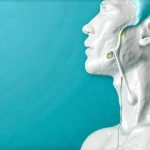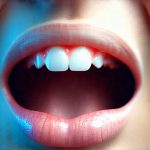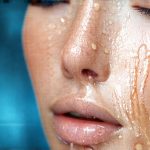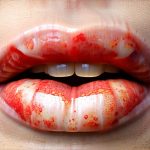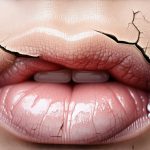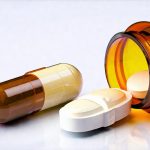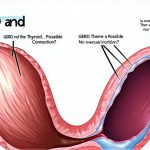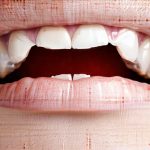Gastroesophageal reflux disease (GERD) and dry mouth, medically termed xerostomia, are both common conditions that can significantly impact quality of life. While seemingly disparate – one involving digestive issues and the other relating to salivary gland function – there’s a surprisingly complex interplay between the two. Many individuals experiencing GERD also report persistent dryness in their mouths, leading to questions about the underlying cause: is it a side effect of medications used to manage reflux, or is it directly linked to the reflux itself? Understanding this connection is crucial for effective management and alleviating discomfort. It’s not always straightforward, as both GERD treatment and the disease process can contribute to reduced saliva production, often making it difficult to pinpoint the primary culprit without careful consideration of individual factors. If you’re unsure is it the food or the additive causing trouble that’s triggering your symptoms, seeking professional advice is key.
The mouth relies on a consistent moisture level provided by salivary glands for functions beyond just taste; saliva aids in digestion, protects teeth from decay, and facilitates speech. A dry mouth isn’t merely uncomfortable—it can lead to difficulties swallowing, increased risk of cavities, oral infections, and even impact nutritional intake. When GERD symptoms flare up, or when medications are introduced to control them, this delicate balance can be disrupted. This article will explore the multifaceted relationship between GERD and dry mouth, delving into how both conditions and their treatments can contribute to xerostomia, and offering insights for managing these interconnected challenges. It’s important to note that self-diagnosis is not recommended; consulting a healthcare professional is essential for personalized assessment and treatment plans. Understanding is it food intolerance or hormonal imbalance can also help pinpoint the cause of digestive distress.
The Role of Medications in GERD-Related Dry Mouth
Proton pump inhibitors (PPIs) and H2 receptor antagonists are cornerstone medications for treating GERD, reducing stomach acid production to alleviate symptoms like heartburn and acid reflux. While incredibly effective, these drugs aren’t without potential side effects – and dry mouth is a relatively common one. The mechanism isn’t fully understood, but it’s believed that some medications can interfere with the muscarinic acetylcholine receptors. These receptors play a role in stimulating saliva production; when their function is altered by certain drugs, salivary flow can decrease. It’s not exclusive to GERD medication either – many other commonly prescribed drugs, including antihistamines, antidepressants, and diuretics, can also have this effect.
The degree of xerostomia varies significantly among individuals taking these medications. Some experience only mild dryness that’s easily managed with simple strategies like sipping water frequently; others may suffer from severe dry mouth that requires more intensive intervention. It’s crucial to remember that not everyone on GERD medication will develop dry mouth, and the severity often depends on factors such as dosage, duration of treatment, and individual susceptibility. Furthermore, polypharmacy – taking multiple medications simultaneously – can exacerbate the problem, as each drug contributes to the overall risk of xerostomia.
It’s essential for patients experiencing dry mouth while on GERD medication to discuss this with their doctor. There might be options available, such as adjusting the dosage, switching to a different medication within the same class (if appropriate), or exploring alternative therapies. Never stop taking prescribed medication without consulting your physician. A healthcare professional can evaluate your specific situation and determine the best course of action. If you suspect GERD with esophagitis is contributing to your symptoms, a proper diagnosis is essential.
How Reflux Itself Can Cause Dry Mouth
While medications often take the blame for dry mouth in GERD patients, it’s important to recognize that reflux itself can also contribute to this issue – sometimes even independently of medication side effects. This stems from several factors related to the physiological impact of acid exposure and inflammation. One key mechanism is microaspiration—the unintentional inhalation of small amounts of stomach contents into the esophagus and potentially even reaching the oral cavity during sleep or periods of increased reflux.
This acidic content can irritate the sensitive tissues in the mouth and throat, leading to inflammation and a disruption of salivary gland function. Chronic irritation can also alter saliva composition, making it thicker and less effective at lubricating the mouth. Another contributing factor is that GERD often causes esophagitis – inflammation of the esophagus – which can affect the nerves controlling swallowing and salivation. This nerve involvement can lead to dysmotility (impaired muscle movement) in the esophagus and reduced salivary flow.
Furthermore, individuals with GERD frequently experience nighttime reflux episodes. During sleep, saliva production naturally decreases, making the mouth more vulnerable to acid exposure and irritation. The combination of reduced saliva and increased acidity creates a perfect storm for dry mouth symptoms. It’s important to note that this type of xerostomia is often different from medication-induced dry mouth in terms of timing and associated symptoms; it may be more pronounced during or after reflux episodes, accompanied by a burning sensation in the throat, or related to difficulty swallowing. An endoscopic ultrasound (eus) can help diagnose esophageal issues.
Managing Dry Mouth Associated with GERD: A Holistic Approach
Effectively managing dry mouth in individuals with GERD requires a holistic approach that addresses both the underlying reflux and its associated symptoms. This begins with optimizing GERD treatment – ensuring adequate control of acid production through medication adjustments, lifestyle modifications (dietary changes, weight management, elevation of head during sleep), and potentially even surgical interventions for severe cases. However, simply controlling reflux isn’t always enough to alleviate dry mouth; additional strategies are often needed.
Staying adequately hydrated is paramount. Sipping water throughout the day – especially before meals and at bedtime – helps maintain oral moisture. Avoiding sugary drinks, caffeine, and alcohol can also be beneficial, as these substances tend to dehydrate the mouth. Using a humidifier, particularly in the bedroom at night, can add moisture to the air and reduce dryness. Over-the-counter saliva substitutes (artificial saliva) are available and can provide temporary relief, but they don’t address the underlying cause.
Finally, good oral hygiene is crucial. Regular brushing with fluoride toothpaste, flossing, and avoiding alcohol-based mouthwashes help prevent cavities and maintain oral health. Consider using a fluoride rinse to strengthen tooth enamel. If dry mouth persists despite these measures, your dentist may recommend prescription medications to stimulate saliva production or other specialized treatments. Regular dental checkups are essential for monitoring oral health and detecting any potential complications early on. If you suspect chronic gastritis is playing a role, consult with your doctor.
It’s vital to remember that the relationship between GERD and dry mouth is often complex and individualized. What works for one person may not work for another, making a collaborative approach with healthcare professionals – including physicians, dentists, and potentially gastroenterologists – essential for achieving optimal management and improving overall quality of life. Understanding IBS symptoms can also help differentiate between digestive issues.


